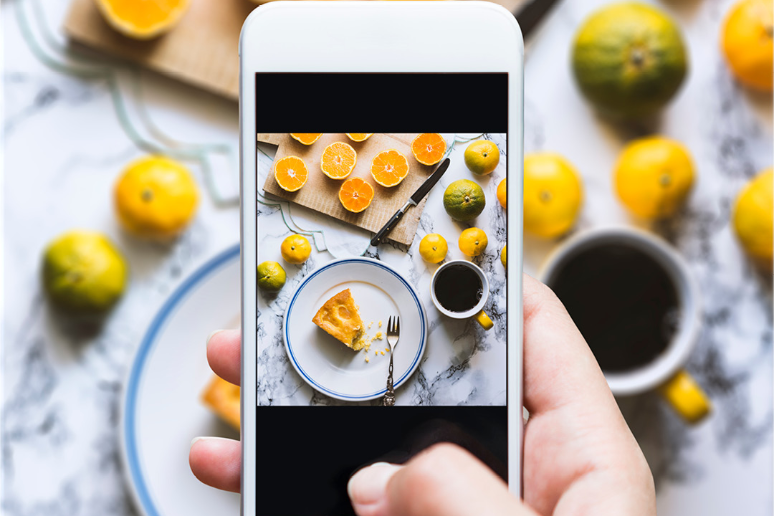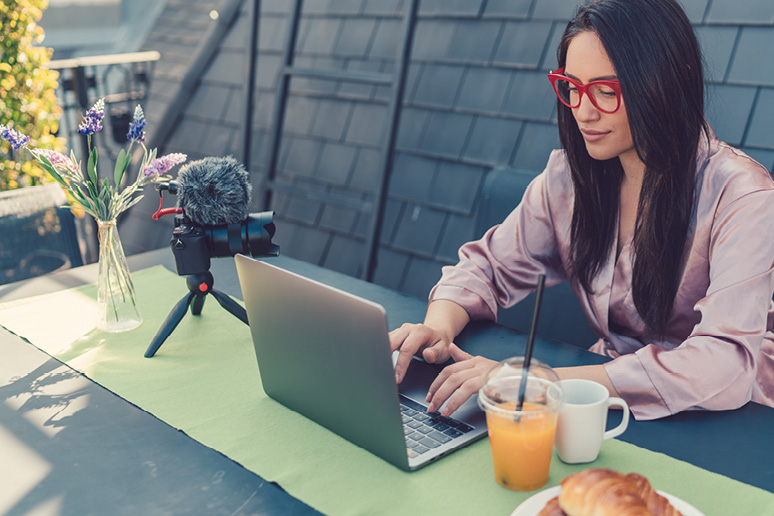According to Omnicore, over 50 billion photos have been shared on Instagram as of Jan. 25, 2020. Moreover, there are over 1 billion monthly active users. While the numbers are staggering, it’s little surprise that some Instagram users are having their work taken and used without their permission.
Buzzfeed reported that influencers, like Pascale Rowe of @MsBlingMiami, are often having their photos taken from their Instagram accounts, and those photos used to sell products or services without their permission. Fans of the influencers see these advertisements and may purchase the products since they perceive that the influencer supports those products or services, Buzzfeed aptly points out.
Are my photos on Instagram copyrightable?
Yes, photos that you have taken and posted on Instagram are copyrightable. “The copyright in and to original photographs would be owned by the photographer, absent any legal transfer of ownership to a third party,” explains Jeff Gluck, Gluck Law Firm, P.C. “An original work of authorship is copyrighted the moment it is created and fixed to a tangible medium of expression,” he says.
Moreover, the creator also holds rights that are accrued before you register with the U.S. Copyright Office, but there are additional advantages if someone was to register their work, says Brendan Healey, partner at Baron Harris Healey.
However, the terms and conditions of social media companies may provide the company with some rights to using content. According to Instagram’s terms and conditions, Instagram notes that it “does NOT claim ANY ownership rights,” but it does have the right to use the content posted on its site. Healey points out that terms and conditions may give a social media platform the right to use the content in certain ways, but it does not mean granting the world rights to the images.
How do I make my images copyrightable?
As noted before, the image has to be “fixed to a tangible medium of expression.” So the idea of an image or creative work is not sufficient for copyright. In other words, there has to be an actual image or creative piece to copyright.
Putting a photo on Instagram does not give or take away copyright, explains Healey. One way to try to protect your photos is by putting a watermark on the photos to show you are the original creator, Healey says. People could take the extra step of registering with the U.S. Copyright Office, but that is a process that requires an application.
Does sharing an image count as violating my copyright?
It depends. Gluck says, “if an image is commercially reproduced without the permission of the copyright holder, that would likely be an infringement.” However, fair use might be an argument that may hold up in court, depending on the facts. For instance, if a photo is used for parody, that might be a defense against copyright infringement.
Courts will take in several factors, Healey explains, including how transformative the use of the image was, the nature of its use, how much of the original work was used compared to the overall piece, and more. Judges may also consider if the copyright infringement impacts the creator’s ability to license or otherwise earn money from their work. But there’s no hard and fast rule on what constitutes fair use.
What if I share a photo or an image that I do not hold the copyright?
Again, it depends on the situation. Fair use may be a defense, but various factors weigh in. Ideally, one should ask permission or obtain a license from the original creator, as a way to avoid any possible issues with copyright infringement. Sarah Hawkins, Attorney at Law, also recommends that people not crop out watermarks in photos: “We call it a watermark but the U.S. Copyright Act calls it Copyright Management Data and provides for what is essentially a fast track to damages for copyright holders. While the biggest challenge may be actually finding someone, under the Digital Millennium Copyright Act (DMCA) if you can show the alleged infringer removed or altered your copyright information and used your work in an unauthorized manner, you may recover damages which start at $2,500 and go up to $25,000 and allow for recovery of attorney’s fees as well as damages related to the infringement.”
Instagram’s terms and conditions does stipulate that people are supposed to own the content or have obtained a license for images posted on their account and that the postings “does not violate the privacy rights, publicity rights, copyrights, contract rights, intellectual property rights or any other rights of any person…”
Moreover, providing someone with credit for their photograph may not be sufficient to prevent copyright infringement. Gluck says, “giving 'credit' is not a defense to copyright infringement. In other words, if you use someone's photograph without permission, it is still an infringement even if you 'link' or 'credit' them online.”
What should I do if someone uses my image without permission?
People who find their images used without their images may want to consider reaching out to the person or company to make them aware of the transgression, says Healey. However, they may make the case that it was fair use. What steps you take depend on the circumstances. If it’s on Instagram, you can ask Instagram to take the image down, says McCabe Rabin, P.A.
You can also reach out to an attorney if your work is being used without permission. However, it may depend on the extent of copyright infringement, such as if it is a single photo, how it is being used, and who is using it, that may impact the desire to take the case to another level, Healey aptly points out. An influencer like Pascale Rowe where her misappropriated image may hurt her brand may be an excellent candidate for a lawsuit against copyright infringers.
 By Elisa Shoenberger,
By Elisa Shoenberger, 

